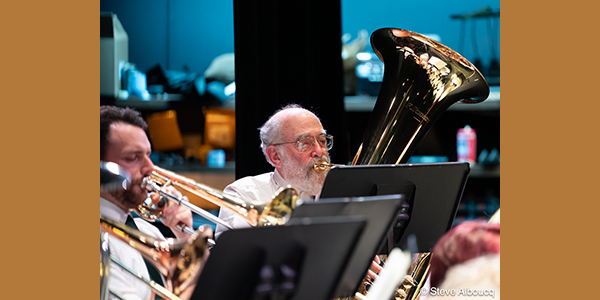What Will We Do and Where Will We Be and Who Pays for What?
Orcas Parks and Recreation Board Conducts Vigorous Discussion
At the public meeting of the new Orcas Park and Recreation District (OPRD) on Wednesday, May 5, OPRD Commissioners entertained a lively discussion about providing continued recreational programs and accessibility to parks and recreational facilities for the Orcas Island public.
Commissioner Jim Bredouw summarized the perceived differences between the OPRD’s mission as an “either-or” proposition:
- either providing for outdoor parks and recreation areas (whether rental or ownership);
- or maintaining indoor recreation programs along the lines of the current Orcas Rec program (now totally dependent on public contributions)
Bredouw said, “Rather than a showdown [of the two viewpoints], we can have a discussion about dichotomy.”
The Orcas Parks and Recreation District was formed by voter approval of the new government body last November. The five commissioners – Bredouw, Bob Eagan, Martha Farish, Ian Lister and Vicki Vandermay – met at the Funhouse (started by Bredouw as a non-profit in 2001) called the special meeting on Wednesday, May 5 to discuss Orcas Parks and Recreation District programming and budgets.
The District was formed in large part as a response to the County’s withdrawal this year of funding from the Orcas Recreation Program as part of the County Parks Department budget. The Orcas Recreation Program was managed by Didier Gincig for more than a dozen years. Now it is managed by Linda Sheridan, and continues to operate – for the time being – out of the County offices in the north wing of the “Senior Center” building off North Beach Road.
As a public entity, the new Parks and Rec District is obliged to hold all discussion among more than two of its Commissioners in the public arena. Commissioner Eagan said, “We’re trying to come to consensus in a public forum, so that we all have a common voice and say the same thing; this is our only chance to discuss, because it has to be public meeting.”
The Commission was encouraged by the strong turnout at their May 5 meeting to discuss how they were to proceed. Farish explained that their discussion was not an argument, but a work in progress; and that differences “clarify the discussion to arrive at what we really want.”
Adina Cunningham, Orcas resident and Friday Harbor’s City Attorney, suggested from her 20 years in business and government administration that Orcas Parks and Rec District Commissioners should:
1) define and agree on their mission ; what is OPRD about?
2) create a structure that includes
- Programs (including maintenance and/or rentals)
- Capital (real estate investments, capital improvements and acquisition)
3) create a budget relating to both continued program fees and fundraising and taxing capabilities
The “hybrid”nature of many island organizations was illustrated as the commissioners spoke about governance, facilities and programs. While Buck Park (currently owned and maintained by the Orcas Island School District) was discussed as the main outdoor area for programs, the “recreational”( meaning “indoor”) programs involved a more complex discussion as a “core indoor facility” for the OPRD.
Suggestions for a physical presence of the OPRD included the public school, the Funhouse, Orcas Center. The budgeting question was then raised “Does OPRD pay to maintain those facilities as they would with ownership of Buck Park?”
OPRD commissioner Martha Farish made the distinction between outdoor “parklike” facilities, and indoor “Black Box” facilities, and added, “The Funhouse and Buck Park both cost a lot to maintain.”
Bredouw said that as a Park AND Recreation District, they needed to be careful that “one doesn’t overshadow the other.”
Sheridan suggested that the main “target facility” for the indoor programs could be rental of office space, such as the 8- x 10- foot office in the County building from which the Orcas Rec program currently operates.
Farish said, “The foundation is there for both indoor and outdoor facilities. What we have to distill for the community is the amount we want to attach to them.”
Bob Phalan said, “The public wants an overall concept. People trust the [OPRD] commissioners; getting a [funding] levy passed is the most important thing.”
But throughout the discussion, the Board spoke of their determination to consider thoroughly the best structures and practices for the new district before speaking in one voice to the public.
Keith Whitaker, a recent Orcas School District (OISD) Board member and now OISD Business Manager, pointed out that Orcas Rec Program was “an anomaly: unlike the Funhouse, it was not a stand-alone 501c3 [non-profit organization]; it was a hybrid with the county.
“Buck Park is another anomaly; it’s an unusual situation because the school should not have taken ownership or operation of Buck Park; it is excessive real estate with no funding to maintain it.
“At the time, [the school district] was able to preserve the park for the community,” Whitaker said, but added that in future, due to school budget and state funding considerations, it was likely that the school “would have to shut the park for liability reasons.”
Justin Paulsen, owner of Terra Firma construction, advised that OPRD employ a director to prioritize the scope of the District’s plans. “It may take five years [to develop the OPRD program], but until you can get somebody — everyday — dedicated to this, discussions will go on for years.”
Dimitri Stankevich, Director of YMCA Camp Orkila said, “I hope … you’re going to charge fees… and bet business sponsorships for individual programs. My sense is if you take out administrative costs, most programs pay for themselves with user fees; that is more true of Orcas Rec than of the Funhouse.”
OPRD Commissioner Lister suggested a “pyramid” model for prioritizing programs that addresses both programs “that pay for themselves,” and those that are subsidized. He illustrated by pointing out that while “armies of soccer kids” may be the foundation of the pyramid, the middle tier may be the swimming program, while the top may be an expensive program that needs to be subsidized, such as “a 10-kid kayaking program may not be paying its fair share, but is offered in the interest of breadth of the OPRD program.”
Bredouw said that the commissioners should define both essential and discretionary programs.
Eagan took a stab at defining the meeting’s progress in budgeting terms, saying “I think we’re getting some agreement.”
He outlined basic actions the OPRD could take as:
- 1) employ an Executive Director in the $50 -$60,000 range, who may decide to delegate to a “Program director out of that;”
- 2) define the facilities, both inside and outdoors to be used by the program, also budgeted in the $50-$60,000 range
- 3) define the “Essential” programs that are “money-losers” that the district needs to finance and describe fundraising for other programs that can be financially supported outside the OPRD operating budget. The budget for the essential programs was also suggested at around $50,000.
Eagan added, “I’m not sure we need to specifically name the facility that will be rented.” He concluded his remarks, saying, “If we can work with the understanding that the community voted for us to take care of immediate needs, there’s nothing wrong with developing [the programs] in 6-12 years.
“We’re still going to have to have sponsors and fund raising; all we’re trying to do [now] is take care of it so we make sure it’s there.”
Bredouw suggested the commissioners consider the programs in light of the pyramid structure, and “come back with something a week from tomorrow that encompasses more of what we’ve been hearing today.”
The advisability and timing for placing a Parks and Rec District funding proposition on the August ballot then became the focus of the meeting.
OPRD Commissioner Vicki Vandermay spoke in favor of getting the OPRD’s funding on the August ballot, saying, “We’ve got programs that need support sooner rather than later.”
Farish brought up concerns for capital planning, saying, “I feel the long stretch of history….What is the structure that absorbs opportunity?” She cited Madrona Point as an example. “What does it take to make sure I build a strong enough floor? I don’t want to rush to judgment and present an inferior proposal.”
The commissioners aired their concerns that, as elected OPRD commissioners they “need to be dedicated to park and rec,” juxtaposed with their perceptions that it may be too difficult logistically to place the matter on the August ballot, and their concern that the School bond vote on the August date may diminish support for both the Parks and Recreation and the School Districts.
Whitaker said, “As a publicly elected board, you have to look at the dictates of responsibility and authority as well as the expectations of public.
“What you find as a board is you have to confront everything that everybody else can gloss over; when you get in a position of responsibility, you have to do the whole thing; the correct thing, the thorough discussion of mission and scope, the development of budget, and then present it to the public.”
Bredouw agreed that OPRD’s voter proposal “has to be defensible and thorough.”
“But now we have a good fire under us to keep up the pace; I think we need to be clear to the school board or we’ll lose some good will.”
Farish said, “With all respect to the school board, we have a duty to run at this as hard as we can until we’re out of time.”
Scott Lancaster, President of the OISD Board said, “We have a mutually mission in a lot of ways: to benefit the children. We’ve been working on the bond for 4 years; granted it’s a bigger scope, but …speaking as a citizen and as one member [of the School Board] we need you and you need us to make this whole thing work.”
**If you are reading theOrcasonian for free, thank your fellow islanders. If you would like to support theOrcasonian CLICK HERE to set your modestly-priced, voluntary subscription. Otherwise, no worries; we’re happy to share with you.**








1. Misson Statement. What are you wanting to do? What did you say to the public that got you elected. Your responsibility is to the OPRD. Not to the school, not to the people in the room who are waiting for you to do something that they can say is too much money or too much program or not enough of both. Think of your elected responsibility. If you want a baseball game name it. If you want indoor skating name it. Then think of what it would take to do this. How in Hell can you hire an executive Director if you don’t know what you want that person to direct. Ask for help. Call Hillary Canty.
I have full confidence in the OPRD Board to launch a well-thought out plan and budget for this new district. I have the greatest respect for their willingness to pursue all viewpoints in arriving at the best plan for this tax-paying district, which will assume the responsibilities of Orcas Islanders’ Parks and Recreation programs for the future enjoyment of all. It takes time, and I am so grateful that this board understands that and pursues thoughtful, respectful consensus.
Margie Doyle